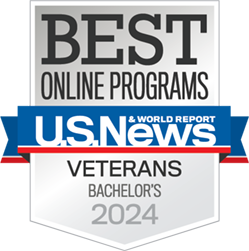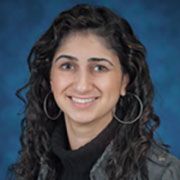
MSHS Clinical & Translational Research
100% Online
24 Months*
Note: We are not accepting applications at this time.
The George Washington University’s (GW) online Master of Science in Health Sciences (MSHS) in Clinical and Translational Research teaches across disciplines and explores biomedical science, clinical administration, community health, and health policy. You’ll learn to develop best practices to bring the latest findings in medical science to the patients who need them most.
*The total number of credits and duration of the program depend on the number of transferred credits
Program Highlights
- 100% online, no residency required; complete your degree in 24 months
- This program requires 36 credits to complete and 6 credit hours are offered as electives
- Up to 6 credits of graduate-level coursework may be transferred into this program
- Collaborate with researchers, patients, and clinicians to provide cutting-edge health care solutions
Program Outcomes
Upon completion of the MSHS in Clinical and Translational Research, you will learn to:
- Develop a broad foundation and understanding of the philosophies and practices of clinical and translational research in human health.
- Lead and collaborate with other scientists, clinicians, investigators on translational research teams.
- Develop strategies for health-care improvement initiatives.
- Evaluate clinical research processes and standards for protecting human subjects.
- Develop translational research proposals in collaboration with professionals from other disciplines.
Request Information
* Indicates required field
- Read: Privacy Disclaimer Acknowledgment
-
By submitting your contact information, you are providing your express consent authorizing GW and GW's representatives to contact you by email, phone, or text (including the use of an automatic dialing system). Standard text messaging and/or data rates may apply.
If you do not provide your contact information (phone and email), we may not be able to provide you with the information you requested.
If you provided your contact information but no longer wish to receive phone calls, emails, or text (SMS) messages from GW, you will have the option to opt-out. Emails and Text messages will include details for unsubscribing/opting out. To opt out of receiving phone calls from GW, contact us via email at info [at] hsprograms [dot] gwu [dot] edu (info[at]hsprograms[dot]gwu[dot]edu) or text/ call: 202-792-2819.
By submitting your information via this form, you also confirm that you have read and understood the GW Statement of Privacy Practices.
Note that the consent requested above is not required for enrollment in GW's programs. If you do not consent to providing the information requested on this form, you may contact us via email at info [at] hsprograms [dot] gwu [dot] edu (info[at]hsprograms[dot]gwu[dot]edu) or text/ call: 202-792-2819.
Accreditation and Rankings
- GW is accredited by the Middle States Commission on Higher Education
- #62 Best National University*
- #13 Best Online Bachelor's Programs*
- #7 Best Online Programs for Veterans*
* The U.S. News & World Report – 2024 Rankings



Curriculum
The online MSHS in Clinical and Translational Research requires successful completion of 36 credit hours including 6 credit hours of Elective Courses, selected in consultation with the program director, from existing online graduate courses.
Who Is the Ideal Student for This Program?
The online MSHS in Clinical and Translational Research is ideal for students looking to build their collaborative, team-based, and leadership qualities and to gain experience working remotely with teams, simulating actual translational research activities in a global environment.
As a leader in providing distance education programs for professionals in a number of disciplines, we capitalize on this strength and deliver the core courses with the program through our state-of-the-art distance education platform.
Career Outlook
Clinical research managers enjoy a median salary of $81,730 with the top 10% of earners taking home more than $108,083 annually. Demand for this role is anticipated to grow by 9.9% over the next decade.1
Graduates can enjoy rewarding careers with employers across a wide range of health care and research organizations, including:
- Academic medical centers and research institutions
- Biomedical organizations
- Biotech companies
- Consumer products companies
- Contract research organizations
- Defense companies
- Diagnostics companies
- Generics companies
- Government agencies like FDA and NIH
- Hospitals, medical centers, and other health care settings
- Medical device companies
- Pharmaceutical companies
- Private research laboratories
Admission Requirements
To apply for the MSHS in Clinical and Translational Research, you’ll need:
| Completed application |
| 3.0 GPA or above on a 4.0 scale |
| Résumé/CV |
| Personal statement |
| Two letters of recommendation |
Tuition Details
The MSHS in Clinical and Translational Research program at GW consists of 36 credit hours. Please find the cost per credit hour and total estimated program costs here.
Note: Tuition rates are subject to change and additional fees may vary by program.
Meet the Program Director

GW’s experienced faculty provide you with the rich, practical knowledge and support needed for you to succeed in the program and in your career.
Samar Nasser, PhD, MPH, PA-C
- Read Full Bio
-
Dr. Nasser is an associate professor in the Department of Clinical Research and Leadership at The George Washington University. For about 10 years, Dr. Nasser practiced as a physician assistant (PA) in the Hypertension and Vascular Disease Clinic, and as the assistant medical director of the Recruitment and Clinical Measures Core on a National Institutes of Health Center Grant in Detroit, MI. During her tenure as a PA, she cared for patients in outpatient and inpatient settings, as well as those participants in several clinical research trials.
While functioning as a PA, she attended the University of Michigan, School of Public Health and obtained her Master’s of Public Health Degree with a specialization in epidemiology. She then pursued a Doctorate of Philosophy degree in 2011 with a concentration in physiology, as she also has a passion to teach others and a deep appreciation for how the human body maintains homeostasis and understanding human physiologic functions as they relate to preventative health measures, public health, and the translational research field.
Dr. Nasser has co-authored numerous journal articles and several book chapters focusing on cardiovascular disease/hypertension and ethnic disparities. Her expertise is focused upon evaluating the factors impacting racial disparities, specifically cardiovascular, and translating evidence-based methods to curb these effects.
Sources
- Burning Glass Technologies: Labor Insight™. Retrieved January 16, 2020.
Curriculum Details
36 total credits required
The MSHS in Clinical and Translational Research program (100% online) requires successful completion of 36 credit hours including six credit hours of Elective Courses, selected in consultation with the program director, from existing online graduate courses.
Core
- CTS 6201 Critical Analysis of Clinical Research (3)
-
Students develop the academic skill sets necessary to succeed in this program in the context of exploring scientific, clinical and regulatory concepts required in medicines development. Students demonstrate their critical analysis skills through literature research, analysis of information from various perspectives, and formulating their own opinions in choosing their ‘defendable positions’, rather than stating the “correct answers”.
- CTS 6205 Clinical Investigation (3)
-
Analysis and evaluation of study design strategies and current practices for major therapeutic areas of clinical research (e.g., vaccine development, cardiovascular disease, anti-infectives, CNS, etc.)
- CTS 6246 Clinical and Translational Research Capstone Project (3)
-
This class is designed for early independent investigators in Clinical and Translational Research as a capstone This course will allow students to apply the knowledge gained throughout the program through the completion of an independent, mentored research project (i.e., original research manuscript, review article, etc.)
- CTS 6261 Foundations in Clinical and Translational Research (3)
-
Overview and analysis of the translational research principles and practice through the application of basic, clinical, community health and health services research concepts. Emphasis is on persuasive communication, conceptually based hypotheses and research methods and the grant application process, including communicating.
- CTS 6265 Grantsmanship in Translational Health Science (3)
-
Writing grant proposals to fund clinical research, with an emphasis on translational research proposals. The development and submission of a transdisciplinary research proposal that responds to a Call for Proposals from an external sponsor, such as the National Institutes of Health.
- CTS 6273 Bioinformatics for Genomics (3)
-
The integration of competencies acquired throughout the program. The development and submission of a transdisciplinary research proposal that responds to a Call for Proposals from an external sponsor, such as the National Institutes of Health.
- CTS 6275 Transdisciplinary Research Proposal (3)
-
The integration of competencies acquired throughout the program Foundational and practical principles and their impact on collaborative and team science engagements. Restricted to PhD candidates in translational health sciences; permission of the instructor may be substituted.
- HSCI 6263 Biostatistics for Clinical and Translational Research (3)
-
Basic concepts and methods of biostatistics applied to translational research. Topics include distributions, populations and sample selection, variables, interaction and confounding, hypothesis formulation, correlation, t-tests, ANOVA, regression, and chi.
- HSCI 6264 Epidemiology Translational Research (3)
-
Students explore the basic concepts of epidemiology which includes various epidemiological study designs used to examine disease frequency, cause-effect relationships between risk factors and disease states, and effects of bias as examples. Students apply epidemiologic concepts in the context of translational research.
- CTS 6286 Leadership, Professionalism, and Team Science in Clinical and Translational Research (3)
-
The principles and practice of leadership, professionalism, and teamwork as it relates to clinical and translational research focusing on collaboration, communication, and health equity.
Prerequisites: Students should have foundational knowledge related to research conducted by a clinical translational research (CTR) team and proficiency in the skills needed to conduct research.
Key Dates
|
Summer 2025 |
Fall 2025 |
Spring 2026 |
|
| Application Deadline |
March 20, 2025 (Closed) |
July 20, 2025 (Applications not accepted) |
November 19, 2025 (Applications not accepted) |
Admissions Requirements
To apply for the MSHS in Clinical and Translational Research program (100% online), you’ll need:
| Completed application |
| 3.0 GPA or above on a 4.0 scale |
| Resume/CV |
| Personal statement: Applicants must include a 250–500 word essay describing your reasons for undertaking study at the George Washington University (GW), your academic objectives, career goals, and related qualifications, including collegiate, professional, and community activities relevant to your program of interest. Include any substantial accomplishments not already mentioned on the application form. |
|
Two letters of recommendation Letters of recommendation should be from:
Recommender will submit a letter via the application portal on letterhead and has a signature and credentials/contact information. |
| Previous work experience (health care experience preferred) |
| Application fee: A non-refundable application fee of $80 is required. The application fee is waived for active-duty U.S. military, current GW students, degree-holding GW alumni, current McNair Program Scholars, and graduates of minority-serving institutions (MSI). |
| Official transcripts from every college and university attended. All non-U.S. transcripts (including those in English) must be evaluated by an accredited foreign credential agency. Please find the list of member organizations here: https://www.naces.org/members. |
NOTE: This program is authorized, exempt, or not subject to state regulatory compliance and may enroll students from all 50 states, U.S. territories and the District of Columbia.
International Students
Effective Fall 2025
International students should check with individual programs regarding eligibility for visa sponsorship. Generally, online and hybrid programs are not eligible for student visa sponsorship from GW. This would include transfer students from any other institution with an existing visa. To be considered for admission, there are required scores that you will need to meet. Score requirements may differ by school and program so check the admissions requirements for your program.
Applicants who have not completed a post-secondary degree from an institution where English is the sole language of instruction are required to submit TOEFL, IELTS, PTE Academic, or the Duolingo English Test scores to be considered for admission. The following are the minimum scores for admission consideration:
- TOEFL: 600 on paper based, 250 on computer-based, or 100 Internet-based,
- PTE: overall score of 68,
- IELTS: an overall band score of 7.0, with no individual band score below 6.0
- DET overall score of 120.
Undergraduate applicants who meet one of the following conditions may be considered for admission without submitting TOEFL, PTE or IELTS or DET scores:
- You have earned an associate’s degree or higher from an institution where English is the sole language of instruction
- You are a citizen of an English-speaking country
Scores may not be more than two years old. To ensure TOEFL scores are sent to GW, use institutional code 5246. An institutional code is not required to send IELTS or PTE scores to GW. DET scores must be submitted via the Duolingo English Test system directly to GW.
Based on the results of your English Proficiency exam results and your application, you may be required to take English for Academic Purposes (EAP) during your first year of study at GW. Please note that GW evaluates each application holistically so applicants may still be recommended for EAP even if they meet the requirements for exemption. Students placed in EAP courses should anticipate additional tuition expenses as well as possible extension of time needed to complete their degree programs.
Official transcripts from institutions outside the U.S. must be accompanied by an official transcript evaluation from an accredited independent evaluating agency. Please be sure you request a detailed evaluation that includes all course titles, credit hours, grades, U.S. degree equivalency, grade-point averages (GPA), and date of degree conferral (course by course evaluation). For a list of acceptable foreign credential evaluation services, please visit NACES.
Supporting documents not submitted online should be mailed to:
Mail: George Washington University
ATTN: Transcript Processing Center
1415 W 22nd St.
Suite 220
Oak Brook, IL 60523
Alternatively, official electronic transcripts can be sent to: transcripts [at] hsprograms [dot] gwu [dot] edu (transcripts[at]hsprograms[dot]gwu[dot]edu)